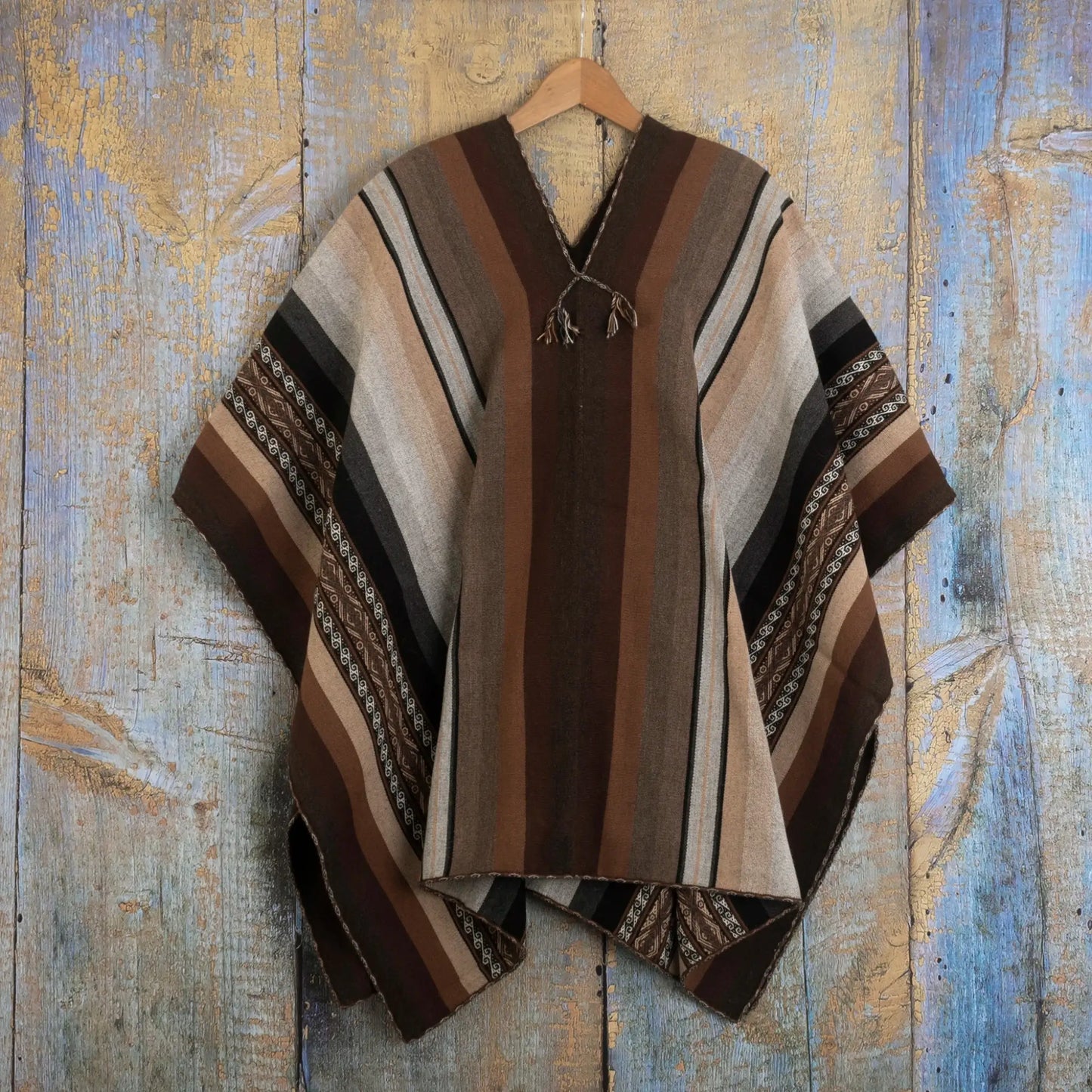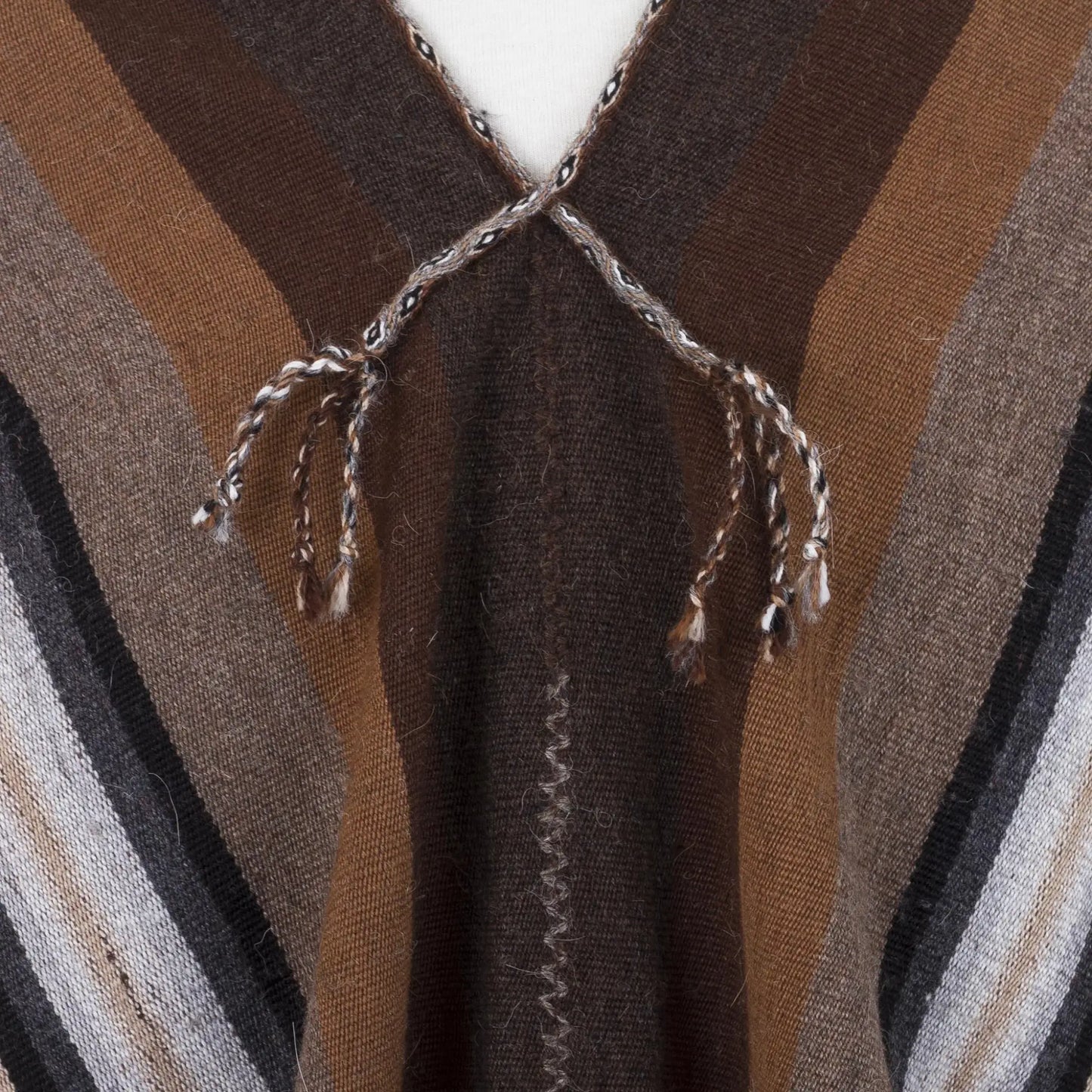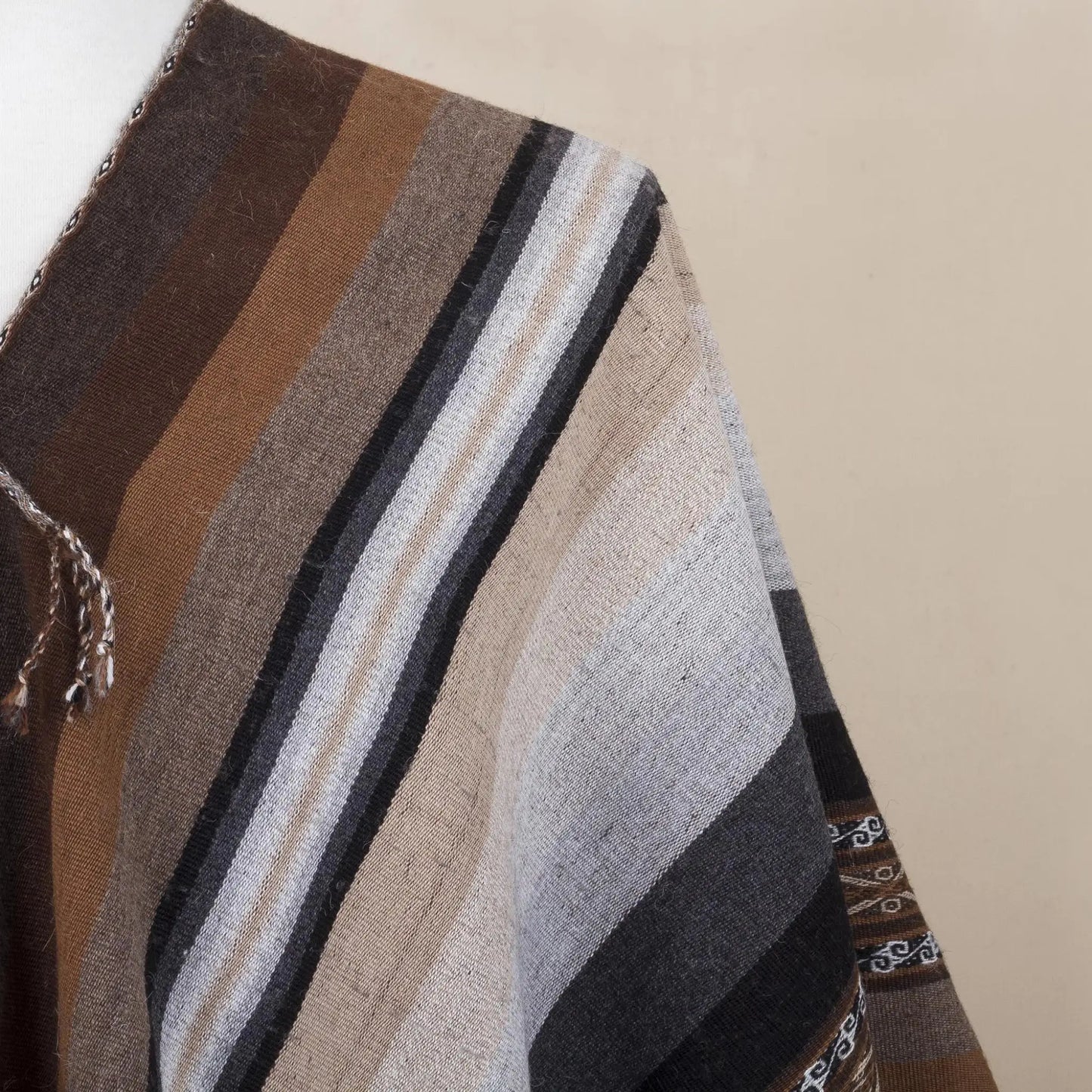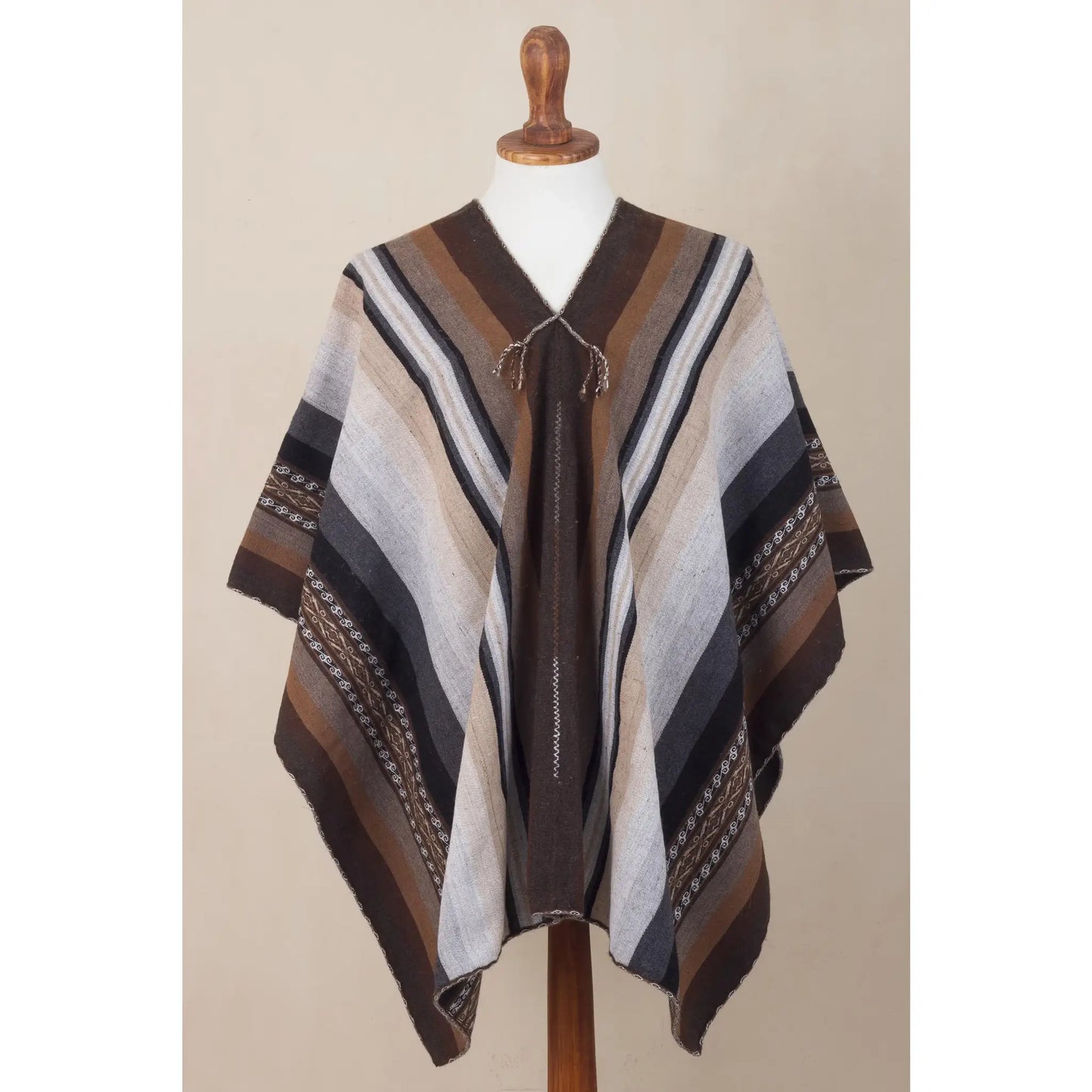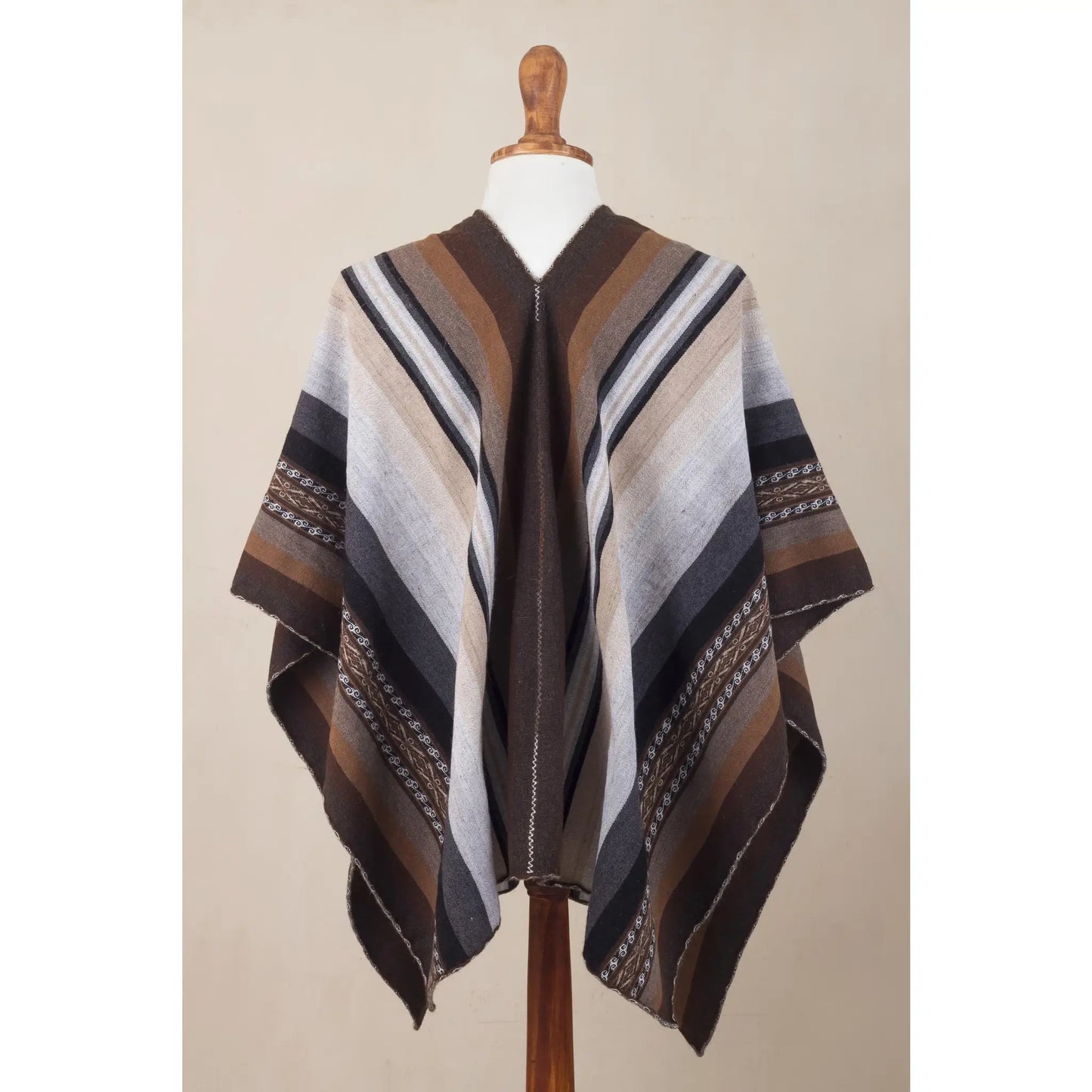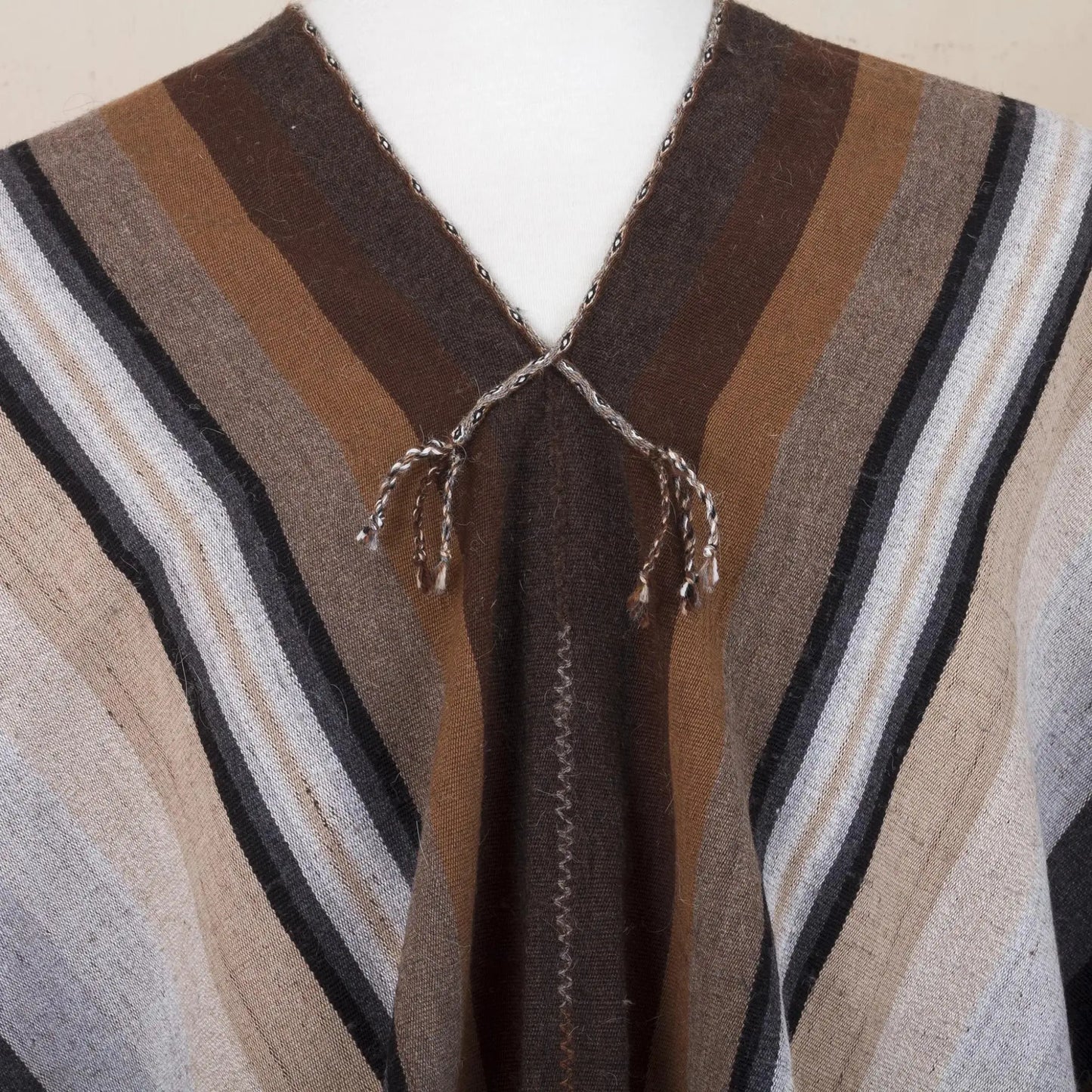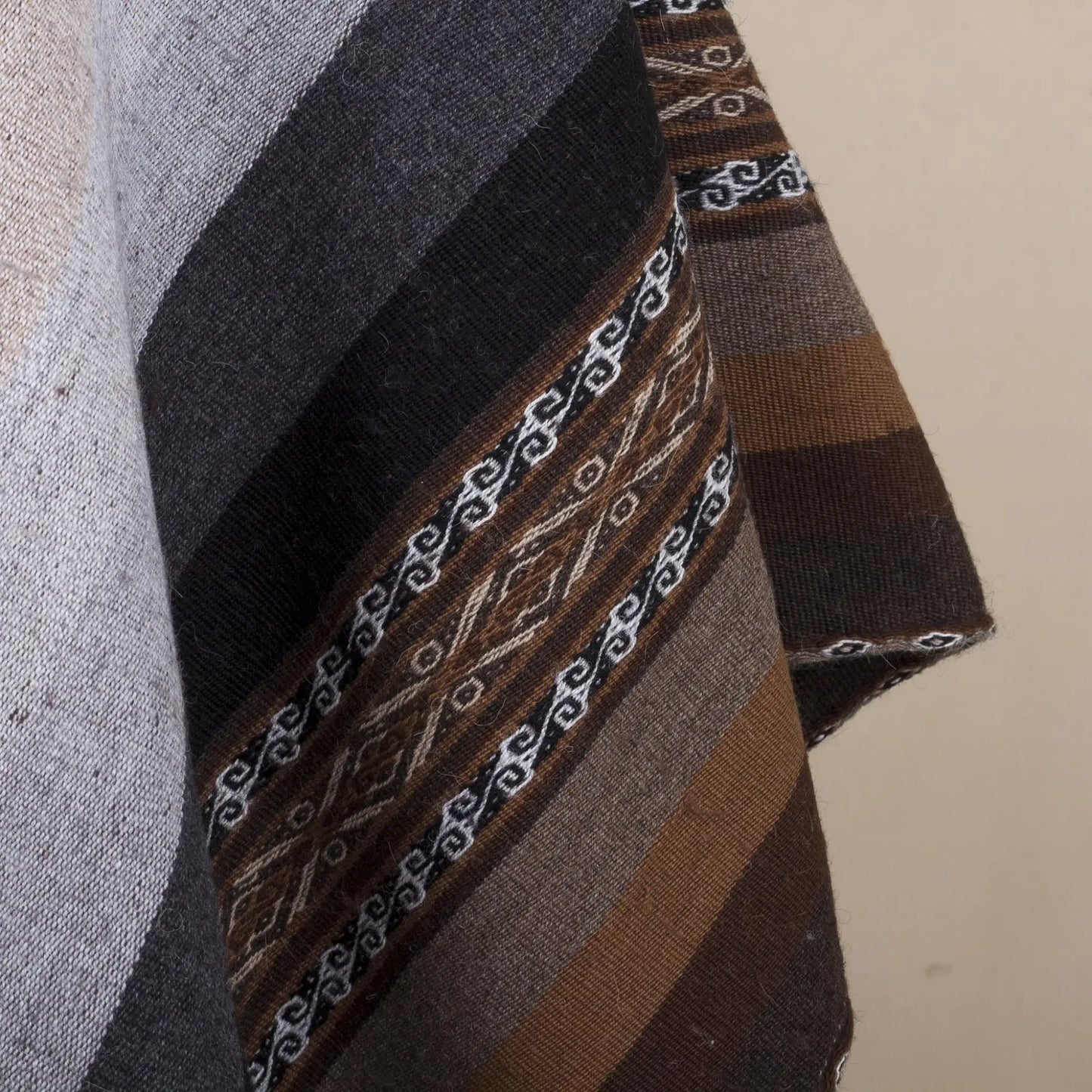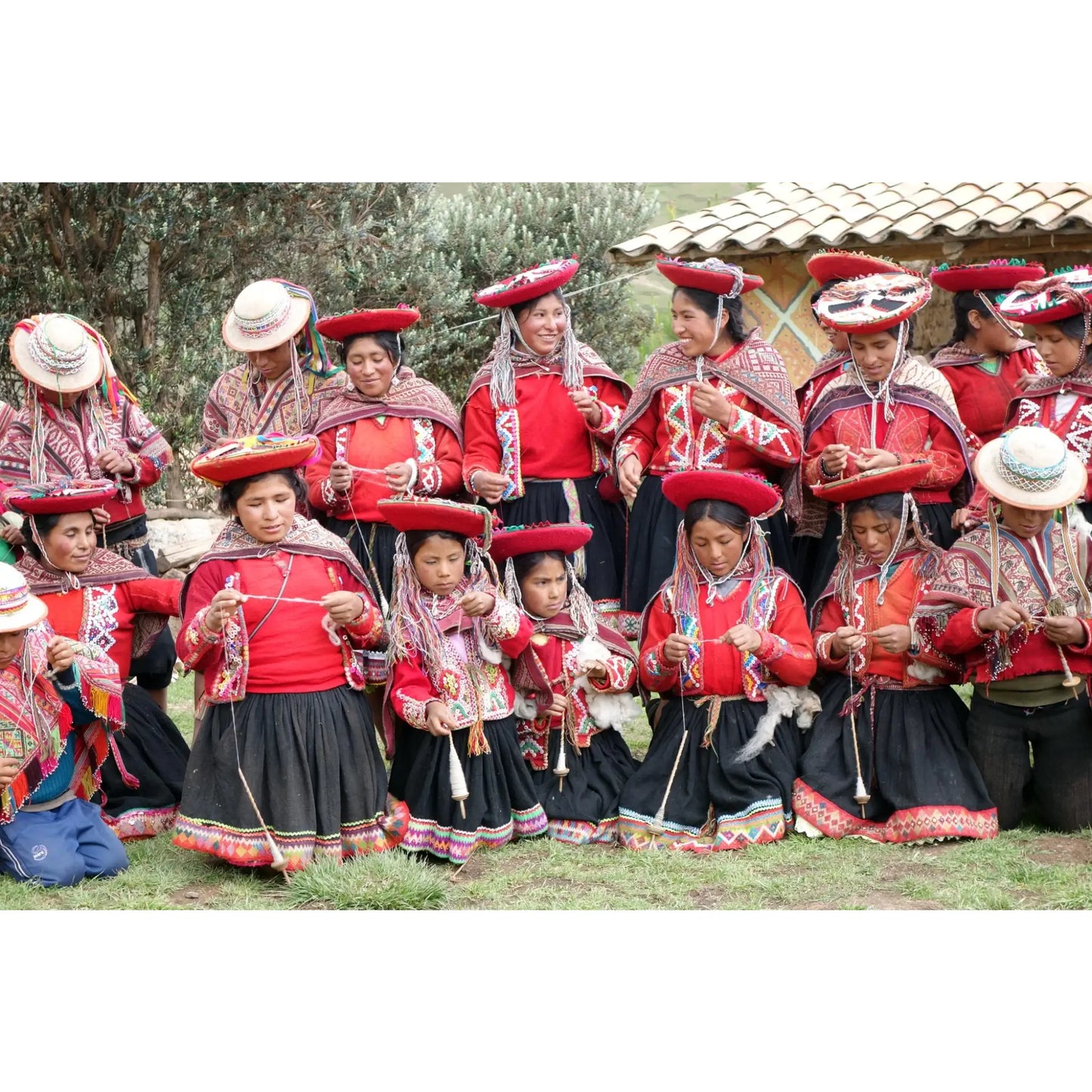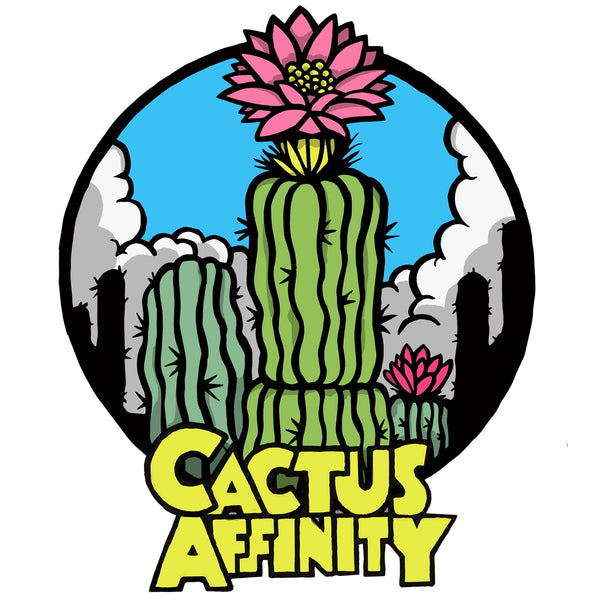Chinchero Legacy - alpaca wool poncho
Chinchero Legacy - alpaca wool poncho
“The center's most important work is with the Young Weavers Groups. Every Saturday, children and young people get together in the community weaving centers to learn from their elders."
Vertical bands of earth tones distinguish this classic poncho for men. Artisans of the Center for Traditional Textiles of Cusco work with ancestral techniques to create fashion for today and always. Woven by hand of fine alpaca wool, prized by the ancient Inca for its lightweight warmth, its colors come from natural dyes. Geometric motifs pay tribute to the traditions of Chinchero, where time seems to have stood still for centuries.
The community raises and cares for its own alpacas. The fleece is washed, carded and spun by hand using a pushka, or drop spindle. The dyes come from plants, nuts and tree bark. The next step is one of the most important, as the artisan prepares the warp, or vertical threads for the backstrap loom. This determines the size of the textile, the color combinations, and the patterns that will be woven.
The intensity of color can vary depending on the hardness of the water, the altitude and the local dye sources, making each textile a unique piece of handcrafted art.
- 2.1 lbs
- Garment Measurements
- 63" L x 42" W
- 100% alpaca
- All natural dyes
- Textile softness: Soft -- this item has been made with natural fibers that are soft to the touch
- Hand-crafted item -- color, size and/or motif may vary slightly
- Eco-Friendly: colored with organic dyes
- Made in Peru, ships from California.
The Artisans of the Center for Traditional Textiles of Cusco, based in Peru, works to practice, sustain, and revive ancestral weaving styles, natural dye techniques, and textile designs. The nonprofit organization works with ten weaving communities from the Cusco region: Accha Alta, Acopia, Chahuaytire, Chinchero, Mahuaypampa, Huacatinco, Patabamba, Pitumarca, Santa Cruz de Sallac, and Santo Tomas. Since it was founded, the weavers have rediscovered the process of natural dyes and recovered hundreds of designs and techniques that were almost forgotten. Nilda Callañaupa Alvarez is the founder and director of the center—and a weaver herself.
"I was born in Chinchero, a magical district in Cusco where our textile culture keeps the ancient techniques alive," Nilda says. "They are still used to create apparel and both utilitarian and decorative designs, and the skills are handed down from generation to generation. Artisanal activities such as dyeing the sheep and alpaca wool with organic colors, and weaving it offer a glimpse into our ancestral culture.
"I've been fascinated with weaving since I was a child. I learned by analyzing a textile from distant regions. I had woven only a little and a tourist bought it, loom and all. I could see how valuable it was to create more intricate and traditional styles instead of the bright textiles with synthetic yarn that most people weave for the tourist market."
The origin of the center dates back to 1970, when Nilda and a group of women began gathering in homes to spin and weave together. They realized Cusco's traditional textiles had begun to disappear, in favor of cheaper products using chemical dyes, and as the chain of transmission from older to younger generations faltered. In addition, the racism suffered by the Indigenous population meant that men and women were ashamed or afraid to wear their traditional clothing.
To save their sacred textile tradition, the weavers dedicated themselves to recovering ancestral designs and techniques, reviving a sense of pride in the Indigenous culture, and selling their products to tourists as a way of maintaining independence. Together they established a community cultural center in Chinchero; the nonprofit was finally established in 1996, with the mission "to provide an interactive space for the weavers and the public through programs, research, and publications that promote and reevaluate our ancestral textiles." Every Saturday, the Young Weavers Groups meet so children have the opportunity to learn directly from their elders, ensuring the future of the region's textile legacy.
"We feel proud to be who we are, proud of our history, and we appreciate it as it deserves. We want to share our art with the world and always motivate our younger artisans. In this way, we want to promote everything that is in our hands to do."
Couldn't load pickup availability
Share
